Sleep disorders and serotonin

Serotonin & Sleep - What to do about sleep disorders?
Exception or permanent condition?
Almost everyone has a night like that. But for every tenth person, sleeping badly is the rule rather than the exception.
For those affected, three or more sleepless nights a week are normal and have been for at least three months. If you have the same problem, you are officially suffering from chronic insomnia.
The number of medically diagnosed sleep disorders in Germany increased by 63% between 2006 and 2017. According to the Health Report, women are significantly more likely to suffer from insomnia, at around 5%, than men, at 3.3%.
Insomnia gives the impression of not sleeping at all, but that's not entirely true. People who suffer from insomnia do sleep a little, it just doesn't seem that way to them because insomniacs are very restless during deep sleep and wake up often.
Nevertheless, insomnia does affect your everyday life.
- Exhausted and irritable
- less resilient
- Difficulty concentrating
Studies alsoshow that there is a link between insomnia and the genesis of depression as well as anxiety disorders.
It is now known that sleep does not occur evenly, but rather in rhythmic phases. They last about 90 minutes each and are repeated on average four to five times per night. Interestingly, the parts of the brain that are important for sleep control contain more serotonin than other areas.
Therefore, it stands to reason to look for the connection between sleep and serotonin. And that's exactly what we're going to explain to you below.

Serotonin, melatonin and GABA
Serotonin keeps you in a good mood. In addition, it controls appetite, pain sensation and the sleep-wake cycle. The previous assumption that a lack of melatonin makes it difficult to fall asleep has been refuted by more recent findings in hormone research. According to this, a serotonin deficiency is the cause of difficulties in falling asleep.
Serotonin is the wake and sleep control hormone from which melatonin is built. Melatonin is then there to pull the already sleeping person deeper into sleep. Also, the important depressant hormone GABA builds up from serotonin, which keeps you in the depths of sleep for some time.
However, because many people often or even chronically have too little serotonin in their brains, either due to worry, stress, or in the winter due to fewer hours of sunlight, sleep disorders, depression, and migraines are common.

Sleeping pills & psychotropic drugs for sleep disorders
Sleeping pills and psychotropic drugs are known to be only a bogus solution due to their sometimes severe side effects. In many cases, however, the use of medicinal serotonin reuptake inhibitors has been able to immediately eliminate the most severe sleep disorders. This points to the great importance of this key hormone for falling asleep and staying asleep. If the "sleep hormone" serotonin is missing, you simply won't fall asleep. No special tricks will help, and you'll have a restless night.
REM sleep, deep sleep - sleep phases and their effect
As mentioned at the beginning, your body works in cycles, during the day as well as at night. Every day you go from phases of great performance to phases of exhaustion, from strong daily forms to weak ones. Your sleep is important for relieving physical fatigue and nervous tension that has accumulated during the day. The natural sleep structure allows for maximum recovery. The transition from one cycle to the next is controlled by serotonin and each sleep cycle is in turn composed of different sleep phases:
- first, the falling asleep phase, which is replaced by lighter sleep in subsequent cycles.
- then the deep sleep phase for physical recovery
- the REM sleep phase for stress reduction.

Beware of serotonin deficiency - The neurotransmitter serotonin is the "conductor" of your sleep structure!
This neurotransmitter allows you to enter the different stages of sleep to reach deep sleep and REM sleep. It should be noted that during these transitions, your sleep is more vulnerable to external influences, which in turn can lead to nighttime awakenings.
Thus, the happiness hormone serotonin regulates falling asleep and consolidates cycles with each other to avoid nighttime awakenings. It is produced from the essential amino acid L-tryptophan.
An intake of L-tryptophan and other substances that enable its utilization:
- promote your serotonin production for falling asleep...
- reduce sleep disturbances and enable deep sleep as well as REMsleep
- supports your physical and mental recovery
Therefore, one method of facilitating the transition to the next sleep cycle and preventing nocturnal awakenings is to optimize the natural production of serotonin from the amino acid L-tryptophan. The utilization of L-tryptophan also requires the presence of other nutrients, such as vitamins B3 and B6, as well as certain carbohydrates.
For quite some time nutritionists, psychiatrists, psychologists and doctors have been dealing with the question of how nutrition affects body and psyche. How does a steak, a portion of potatoes or a bar of chocolate influence the state of mind?
Is it true that many people fall asleep better after drinking warm milk with honey?
What is certain is that people take in substances every day with their food that the body needs for the synthesis of messenger substances in the brain.
With food you take in serotonin as tryptophan. Serotonin itself is also found in many foods, including bananas, pineapple, kiwi, plums, tomatoes, avocados and many more, but this serotonin doesn't do you too much good, as only tryptophan can break through the "blood-brain barrier" and thus reach the brain. Tryptophan is an amino acid and is therefore found mainly in protein-rich foods such as beef, pork, roast chicken, eggs, halibut, cod and mackerel, but also in Camembert, Brie, peanuts and hazelnuts, as well as almonds and oatmeal. Heavy food as well as large portions in the evening will affect your sleep quality and can cause problems at night, so easy-to-digest foods like a lean piece of meat, fish or tofu with a serving of steamed vegetables are often better.
In addition to diet, you can also consider various behaviors and habits that have a more or less beneficial effect on sleep:
- Loud sounds and noise can disrupt your sleep considerably. A television or radio that is on may help you to fall asleep, but it can also wake you up during the night or cause you to have a restless sleep. It is advisable to ban the television from the bedroom.
- Thebed is for sleeping. Do not use it for studying, eating or watching TV. You should only associate the bed with sleeping and not let everyday stress, thoughts, worries or musings into the bedroom.
- A certain regularity in your sleep hygiene, such as fixed bedtime and rising times, but also sleep rituals help to support your personal sleep-wake rhythm. Rituals that are always performed in the same order before going to bed can prepare you for sleep and make it easier to fall asleep, such as taking a lukewarm shower, brushing your teeth, putting on your pyjamas, listening to relaxing music, meditation... A warm full bath has a calming effect on your nerves and helps with insomnia. Lime blossom, lemon balm, valerian or hop extracts in the bath water make the journey into the land of dreams all the easier.
- Exercise in the earlier evening hoursalso tires your head out for sleep. One option is to go for a walk in the evening. Emphasis on light, because intense, late-night exercise is counterproductive. This ramps up your stress hormone levels and keeps your metabolism running at full speed for some time, making it difficult to impossible to fall asleep. Three hours before you go to bed, you should stop exercising so that your body can rest.
- Compulsive sleeping is a huge sleep killer. If you can't fall asleep and you are constantly tormented by the thought that you must finally fall asleep, you will stay wide awake even longer. This is because this attitude has an upsetting effect and is not relaxing at all. The best thing to do against this self-imposed sleep pressure would be to get up and do something tiring. For example, do a crossword puzzle, listen to some relaxing music or read a light book.
- Coffee, tea, and other caffeinated drinks in the late afternoon and evening can disrupt your sleep as well. Nicotine can also promote difficulty falling asleep and staying asleep. Alcohol may make it easier to fall asleep, but it will interfere with the stages of sleep.
- Nature's helpers also come in the form of houseplants, especially those that absorb carbon dioxide at night. These include true aloe vera, bromeliads and bow hemp, green lilies, the dragon tree and the yucca palm. These green helpers also increase the relative humidity to 40 to 45 percent, which is also very beneficial for your sleep.
Causes of sleep disorders
There are many causes for sleep disorders: Stress, anxiety, grief and worry. However, if there is an underlying illness, it should be treated first and foremost. Therefore, if you have long-lasting sleep problems, consult a doctor. If he finds nothing, then maybe some of the above advice and knowledge about the power of serotonin and serotonin deficiencywill help.
Or, our serotalin. Each capsule contains valuable amino acids, minerals, vitamins and trace elements that are precisely balanced. Straight from the happiness lab, not only to make you happier, but also to take you to the land of dreams with a smile.

JETZT 15% SPAREN & GLÜCKLICH SEIN
Melde dich jetzt zu unserem kostenlosen Newsletter an und erhalte 15% Rabatt auf deine erste Bestellung!
Es gelten unsere Datenschutzbestimmungen. Abmeldung vom Newsletter ist jederzeit möglich.







